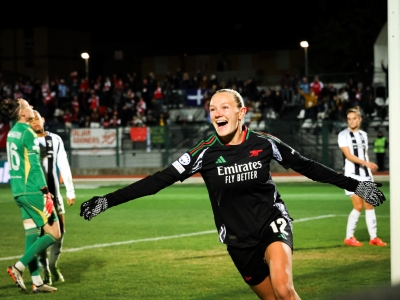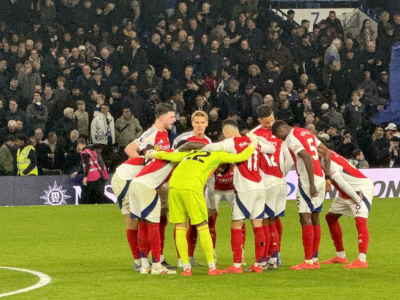"The media are enjoying it, the majority of the media are enjoying it. They're enjoying us getting all this stick because normally nothing comes out of Highbury.”
The above quote, taken from a speech George Graham gave to the Arsenal squad during the 1990/91 title-winning season, is almost as accurate now, 25 years later, as it was then.
Normally nothing came out of Highbury during the Graham years and even in the twitter era nothing much comes out of The Emirates. That says something for the efficiency of the club's media department and its efforts to maintain the uneasy truce between two permanently suspicious interest groups.
Managers and players believe that journalists and editors are often cynical, manipulative and morally vacuous bastards. Journalists and editors often believe that managers and players are equally cynical, manipulative and morally vacuous bastards.
The result is the modern press conference, a deathly pointless ritual in which footballers say nothing at all, because when they do, journalists make them look like arseholes.
A classic example came when Jack Wilshere gave an honest answer to the question of whether or not Manchester United’s Kosovo-born Belgian Adnan Januzaj should be eligible to play for England.
"The only people who should play for England are English people. If you've lived in England for five years, for me, it doesn't make you English. You shouldn't play. It doesn't mean you can play for that country. If I went to Spain and lived there for five years, I'm not going to play for Spain. For me an English player should play for England really."
The idea of the England team picking English players wasn't hugely controversial, but even the supposedly reputable Guardian conjured the headline: “Jack Wilshere enters the Januzaj debate: Keep England for the English.” The assertion that Wilshere had "entered the debate" as opposed to "politely answered a question" was dubious, but it was far less damaging than the subtle inference of racism, with the headline echoing an EDL refrain.
This is just one example of what even the more credible news outlets can do to a player and that's before we take into account entities like the Daily Star and Piers Morgan, both of whom swallowed this quote, which supposedly came from Cesc Fabregas.
"If I ever wear a Chelsea shirt you have permission to kill me."
Fabregas was alleged to have said this on Twitter in February 2010, a quote that was retrospectively used to make him look hypocritical, fickle and shallow. It also conveniently overlooked the fact he didn't join Twitter until seven months after the supposedly incriminating tweet.
The role of the quote and its twin brother the misquote hasn't really changed since Herbert Chapman managed Arsenal. Now that almost every interview is recorded outright fabrication is rare, but for as long as reporters have been sticking notepads in front of managers, the potential for words to be taken out of context, twisted and used as a weapon of disinformation has remained constant.
When Chapman was quoted saying, "I don't mind what you write about Arsenal as long as you mention them," over 80 years ago, it could have been taken as evidence of an astute media operator.
But according to one of his eventual successors, Tom Whittaker, Chapman never actually said it - or perhaps more accurately, he might have said it but he certainly wouldn't have meant it.
Chapman demanded accuracy and would berate any journalist he felt had "overstepped the bounds of truth".
Like another of his successors Arsene Wenger, Chapman was aware of the cynicism of the press and realised that the only viable strategy for coping with it was to use this cynicism to his advantage whenever possible.
When that didn't work, such as after a spat with the Daily Mail in the 1930s, Chapman could reflect that he preferred being misquoted to being ignored, but it was with the air of resignation of a man who knew he could only win so many battles.
Writing in the early fifties, Whittaker himself felt the British press showed "dignity and fairness" compared to their South American counterparts when he arrived on a tour of Brazil that offered a nightmarish vision of the future of football journalism.
The gentleman Whittaker read that he was supposed to have claimed: "English Football is the best in the world; Arsenal will win every match" and "Brazilian football is third-rate." By the time he'd called a press conference to protest against this deliberate propaganda the damage was irreversible.
In the matches themselves Brazilian radio reporters were so desperate for quotes that they would actually run onto the field of play after a goal and try to get the scorer to say a few words, something even Sky haven't attempted (yet).
The manipulation works both ways however. Managerial press conferences have evolved into sinister, choreographed affairs with "the quote" often a calculated act of bad sportsmanship deliberately designed to unsettle a rival or influence a referee. Apologists refer to this as "Mind Games."
In the build-up to the game that ended Arsenal’s 49-game unbeaten run, “Sir” Alex Ferguson referred to the previous season’s 0-0 draw at Old Trafford in the following terms:
"They got away with murder. What the Arsenal players did was the worst I have witnessed in sport."
This was, demonstrably, bollocks, but coincidentally or not, United were allowed to get away with a game plan of cynicism unrivalled since Brazil’s World Cup quarter-final win over Colombia nearly a decade later, while the United fans sang, “Same Old Arsenal, Always Cheating.”
Ferguson is far from the only manager to have stooped to this tactic, but Wenger (whose reaction to the defeat was inevitably portrayed as churlish and unsportsmanlike) tends to avoid it.
He can sound bitter and resentful in "pressers", particularly after defeats, but as a rule he manages to be consistently entertaining and quotable, even though English is not his native language. He regularly produces brilliant, if somewhat surreal analogies and isn't always rewarded for his candour.
At the start of the 2002-03 season Wenger was asked if his team could go the entire season undefeated.
"It's not impossible as AC Milan once did it but I can't see why it's so shocking to say it. Do you think Manchester United, Liverpool or Chelsea don't dream that as well? They're exactly the same. They just don't say it because they're scared to look ridiculous, but nobody is ridiculous in this job as we know anything can happen."
This was an ambitious statement, but it was tempered with caution that was deliberately ignored by journalists and editors who were intent on making Wenger look like an arsehole - which is precisely how a sizable percentage of their readers want him to look.
A sample headline was "Comical Wenger Says We Can Go The Whole Season Unbeaten" and the lie flew several thousand times round the world before the truth had even started to get its pants on.
The role of "the quote" in football has changed out of all recognition since Graham's era, when it was still common to read match reports without any reported speech. Now the “style books” used by most newspapers and agencies compels the writer to use a quote by the third paragraph, regardless of its banality.
Wenger's least interesting quotes come after an Arsenal victory, when he can be relied on to praise the team's "character" and spirit". When things do go wrong his job is to work with the club’s media department to protect Arsenal’s reputation. As a general rule they do so almost as effectively as Graham's back four once protected David Seaman, but even that backline conceded occasionally. And not even the most effective media department can shut down everything. Take this quote from William Gallas in 2008, in an interview with the Associated Press:
“When, as captain, some players come up to you and talk to you about a player complaining about him and then during the match you speak to this player and the player in question insults us, there comes a time where we can no longer comprehend how this can happen. I am trying to defend myself a bit without giving names. Otherwise I’m taking it all (the blame). It’s very frustrating. I’m 31, the player is six years younger than me.”
The quote was shocking for a number of reasons.
It was an unprecedented attack by an Arsenal captain on his team mates. It shattered the myth of a united dressing room and left fans wondering if Arsenal's players knew they were supposed to be battling the opposition or each other. It rendered Gallas's position untenable and called into question Wenger's judgement in handing him the role in the first place.
Yet what was most surprising was that the story emerged at all, even though the Arsenal side that season contained personalities like Gallas, Adebayor, van Persie and Nasri, all of whom were capable of starting arguments in the proverbial empty room.
Quotes with that power usually only emerge after a player has left the club. Gallas, however, was trying to sell a book and even the worst autobiography, tossed out into a ghost's dictaphone over the course of a few hours, offers something the press conference almost never can, a genuinely reflective insight into the player’s mindset, away from the defensiveness and hostility of a post-match inquisition.
This is why autobiographies are so useful. In some cases, particularly for books that haven't been serialised, they have only been read by a few thousand people and the material seems almost fresh even when it’s several years old.
While researching: "Arsenal: The French Connection," I read dozens of player autobiographies, including Ashley Cole's "My Defence," which I acquired for 3p via Amazon.
Cole's book was mercilessly pilloried when it was released in 2006 and his famous quote about nearly crashing his car when he was "only" offered £55,000 per week has been endlessly recycled ever since, yet the full text itself offered several insights that have never really appeared anywhere else, chiefly the fact that his departure for Chelsea could easily have been avoided.
When it was released, Theo Walcott's "Growing Up Fast" was dismissed on the grounds that Walcott was still barely out of his teens when he or his ghost wrote it, but it is an underrated piece of work which contains a couple of beautifully subtle character assassinations of Robin van Persie and Samir Nasri.
In the course of over 125 years there are plenty of similar gems to be found in amongst the sea of platitudes about "never giving up" and "showing our fighting spirit”. Some are jaw-droppingly brilliant, others hilarious, many are contradictory and just occasionally, like Alex James' words on his death bed, simply heartbreaking.
Five decades before Walcott was born, Cliff Bastin was showing a similarly dry sense of humour while talking about Alex James and Herbert Chapman was offering the press the kind of quotes one can easily imagine Arsene Wenger saying.







